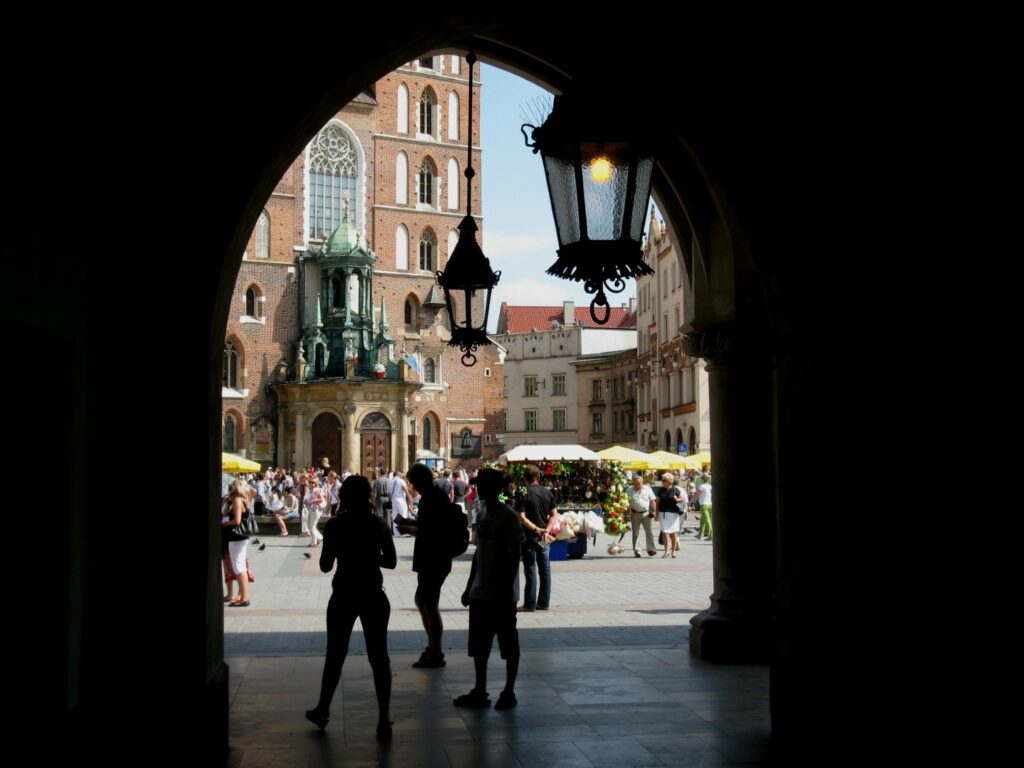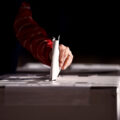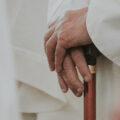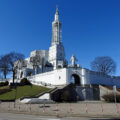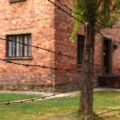The war of Poles against Poles during the pandemic
The war of Poles against Poles during the pandemic
The pandemic only worsened existing political problems in Poland. The tensions have even been dubbed the ‘Polish-Polish war’.
This article is part of our series on the social impact of COVID-19.
Ravaged by the pandemic
With one of the highest excess deaths rates globally,[1] significantly understaffed and underfunded healthcare,[2] and deep political divisions, Poland has been ravaged by the COVID-19 pandemic. With the accompanying high inflation, the problematic housing market, doubts around the presidential elections, and two refugee crises, Polish society has been significantly reshaped. The problems grew to such an extent that they have been dubbed the ‘Polish-Polish War’ (Wojna polsko-polska).[3]
Pandemic only worsened already deep political divisionsas
The pandemic’s beginning marked the fifth year in government for the coalition of right-wing parties under the leadership of the Law and Justice party. Already at that time, polarisation of Polish society was steadily increasing.[4] [5]
The development of the pandemic only worsened political problems. The controversial presidential elections in June 2020 were won by Andrzej Duda, the Law and Justice partycandidate, by a thin margin, leaving many uncertain about their validity.[6] [7] [8] The Constitutional Tribunal’s ruling restricting abortion resulted in mass protests, despite significant numbers of new infections.[9] [10] The return of Donald Tusk, polarising leader of the largest opposition party, to national politics from his post as the President of the European Council reinvigorated his rivalry with Jarosław Kaczyński, leader of the Law and Justice party.[11] [12] [13]
Both coalition partners of the Law and Justice partybecame increasingly critical toward the biggest party and the government led by Prime Minister Mateusz Morawiecki. When the coalition’s internal struggle led to a hostile takeover from within the more moderate coalition partner, the government was left without a secure majority, and the remaining parties veered to the right. The multiple controversies in handling the pandemic during 2020 further impaired public support for the government.[14]
Vaccine hesitancy, misinformation, and the fight over restrictions
The economic inequalities further strengthened political polarisation,[15] as well as significant political divisions between generations[16] and genders.[17] These political divisions led to the lowest levels of trust in a national government in Europe.[18] Because media were viewed as party-aligned, social media became the primary source of information for 75% of society, according to the study conducted by the SWPS University of Social Sciences and Humanities.[19]
The mistrust in the government led to high levels of vaccine hesitancy,[20] and the emergence of groups contesting the impact of pandemic-related restrictions on their work and life, from healthcare workers,[21] teachers and students,[22] to business owners.[23] The mistrust towards the media and official state channels led to numerous conspiracy theories spreading widely.[24] The growing group of pandemic disbelievers was supported by the Confederation Liberty and Independence, a fringe coalition of right-wing parties which lost its Facebook page mid-pandemic for misinformation and hate speech.[25]
The complex picture of religion
Religion complexified the picture further. The government was for a long time hesitant to close churches for fear of their electorate.[26] When it finally did, there seemed to be a degree of consensus about the restrictions, with Catholic bishops offering dispensation from the Sunday Mass participation.[27] However, over time the question of whether to keep churches open became one of the main battlefields of the pandemic. The lines of division were not clear, with some bishops, priests, and laypeople advocating for significant restrictions, and others disagreeing, actively disobeying them, or even spreading misinformation and conspiracy theories.[28] [29] [30]
The COVID-19 pandemic also functioned as a catalyst for leaving religious practice behind. While the Roman Catholic affiliation remained at a high level (87.4% in August 2021), the decrease in levels of religious practice accelerated from May 2020 onwards. The most significant drop has been observed among people aged 18-34, which might have also been an expression of the deep polarisation mentioned earlier.[31]
No end in sight
While there are glimpses of hope that the pandemic might soon be a thing of the past, the same is not true for polarisation in Poland. Significantly divided, Polish society is heading towards even greater cleavages. Even Russia’s invasion of Ukraine did not help to mend the social ties. The short-lived unification broke as soon as the government tried to force regulations relieving government officials from responsibility for criminal actions in handling the growing refugee crisis.[32]
The Catholic Church does not seem to be in a position to influence the situation either. On the one hand, it is viewed by those opposing the government as too politically aligned with the ruling coalition. On the other hand, during the crisis on the Polish-Belarusian border, the voice of the episcopate’s calls for humanitarian treatment of refugees did not have a significant influence on the government’s action.[33] Ultimately, this polarisation has no end in sight.
You can use the free EARS Dashboard to learn more about trends and developments on the topic of religion and society. Hundreds of article summaries from all over the world were added in the past month!
Sources
[1] Tracking covid-19 excess deaths across countries | The Economist
[2] Służba zdrowia wymaga zmian. Co wykazał raport NIK? | TVN Zdrowie
[3] Wojna polsko-polska ruszy za chwilę pełną parą. Będziemy szukać wewnętrznego Putina. – blog Układ Otwarty (salon24.pl)
[4] Polarization in Poland: A Warning From Europe – The Atlantic
[5] Poland: A Case of Top-Down Polarization – Hubert Tworzecki, 2019 (sagepub.com)
[6] Pomaska: Nie ma wątpliwości, że te wybory nie były uczciwe – RMF 24
[7] Czy te wybory będą ważne? Oto możliwe scenariusze – Opinie – Newsweek.pl
[8] Wybory są ważne, Andrzej Duda prezydentem. Sąd Najwyższy podjął uchwałę – RMF 24
[9] Poland’s mass protests for abortion rights: ‘This is war’ | Features | Al Jazeera
[10] Protesty po wyroku TK w sprawie aborcji. Komentarze zagranicznych mediów – TVN24
[11] Stankiewicz: Tusk chce wygrać z Kaczyńskim, więc wie, że nie ma powrotu do tego „co było” – blog Salon24 news
[12] Kaczyński komentuje powrót Tuska. „Taka jest brutalna prawda” – Wprost
[13] Donald Tusk wraca do polskiej polityki. Przemówienie na Radzie Krajowej PO – TVN24
[14] Sondaże / Polska – ewybory.eu
[15] Wzrost polaryzacji społecznej [MEGATRENDY 2050] – PTSP.pl
[16] Brzyski: Mamy do czynienia z rosnącą polaryzacją międzypokoleniową — Klub Jagielloński (klubjagiellonski.pl)
[17] Gulczyński: Musimy stawić czoła rosnącej polaryzacji między płciami wśród młodzieży — Klub Jagielloński
[18] Living, working and COVID-19 (Update April 2021): Mental health and trust decline across EU as pandemic enters another year (europa.eu)
[19] Media a poglądy polityczne – Uniwersytet SWPS
[20] Living, working and COVID-19 (Update April 2021): Mental health and trust decline across EU as pandemic enters another year (europa.eu)
[21] “Białe miasteczko” i protest medyków przed kancelarią premiera. Darmowe badania i konsultacje medyczne – TVN24
[22] Uczniowie wspierają strajk nauczycieli. We wtorek protest pod MEN (wyborcza.pl)
[23] Protest przedsiębiorców. Policja zatrzymała ponad 60 osób – Dziennik.pl
[24] Raport_koronawirus_w_Polsce_5_fal.pdf (pan.pl)
[25] Facebook usunął profil Konfederacji za fake newsy o koronawirusie i mowę nienawiści – Polityka – Newsweek.pl
[26] Poland tightens lockdown but keeps churches open for Easter – POLITICO
[27] Biskupi znoszą dyspensę od uczestnictwa w niedzielnej mszy – rp.pl
[28] Kościół i pandemia: list do żywych | Tygodnik Powszechny
[29] Katowice. Jeden z kościołów proponuje spowiedź, msze i sakramenty w trakcie eskalacji pandemii koronawirusa | Wiadomości Radio ZET
[30] “Konsekracja dłoni chroni przed koronawirusem”. Jest stanowisko Episkopatu Polski – Wiadomości – polskieradio24.pl
[31] CBOS: Dramatyczny odpływ wiernych z Kościoła katolickiego. Najbardziej laicyzują się młodzi Polacy – Społeczeństwo – Newsweek.pl
[32] Organizacje społeczne: w ustawie dla uchodźców zostały przepisy korupcjogenne – rp.pl
[33] Usnarz Górny. Episkopat o sytuacji migrantów na granicy polsko-białoruskiej – TVN24
